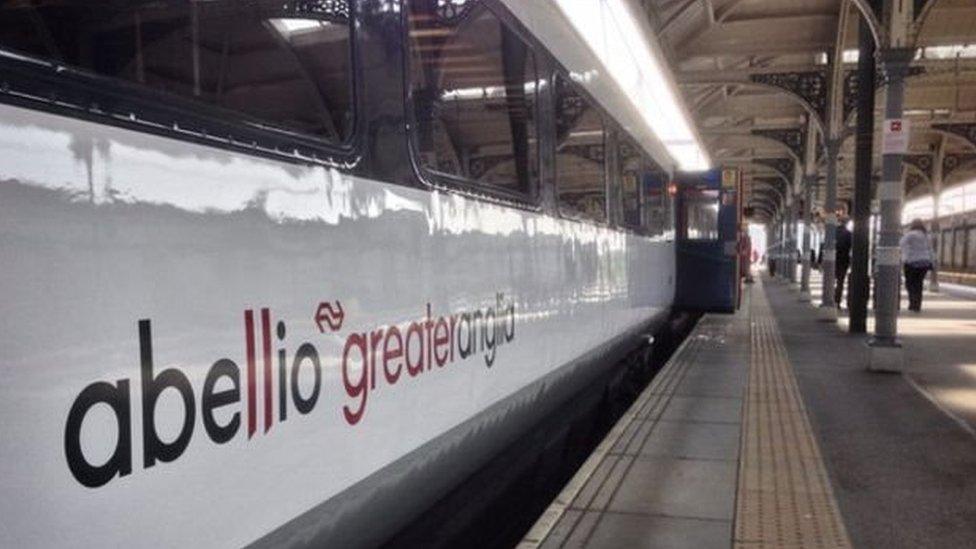'Lack of interest' in running rail franchises, MPs warn
- Published
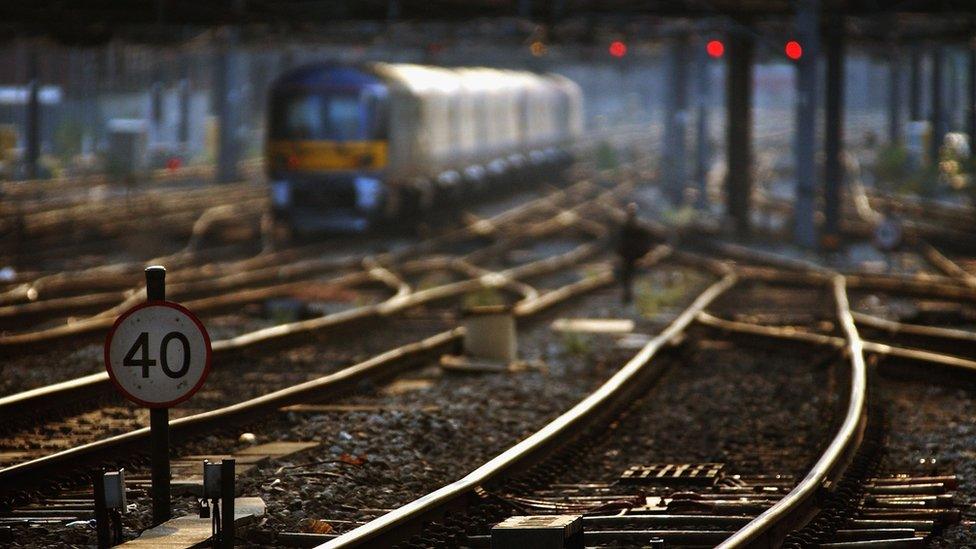
Taxpayers could end up out of pocket because not enough private firms want to bid to run rail franchises in England and Wales, MPs have warned, external.
A lack of competition between companies bidding to operate routes could mean the government struggles to get value for money, a report by the Public Accounts Committee said.
It urged ministers to develop an "alternative commercial strategy".
The Department for Transport said it was "working to actively seek" bidders.
MPs noted that the DfT - which is responsible for awarding rail franchises in England and Wales to private sector companies - requires at least three bids per franchise to "create competitive tension".
However, the committee said there are signs that interest is "dwindling" among companies willing to make an offer.
'Hardly inspires confidence'
MPs expressed concern about the DfT's competition-led approach to franchising, warning there was "a real risk to value for money" if market interest declined any further.
The report urged ministers to develop an alternative commercial strategy to be used if competition for franchises continues to fall and suggested looking at other markets where competition is low, such as energy, to see if lessons could be learned.
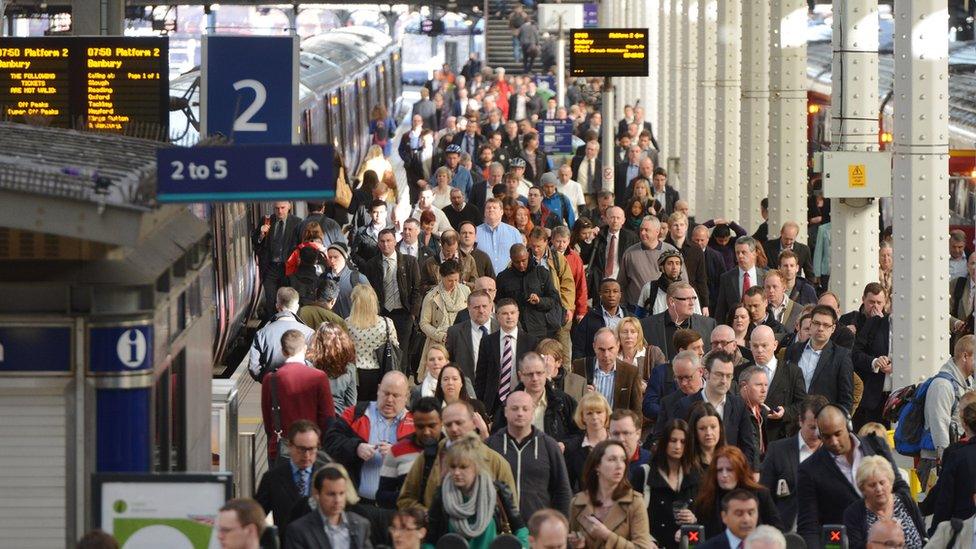
The report said the first five franchises to be made available after the government's bidding programme was restarted in 2013 attracted three bids each. It compared with an average of four for the previous 10 rounds of bidding.
There are 15 franchises in England and Wales which each give companies the right to run passenger services in a particular area for a specified period.
They are awarded following a tendering process that involves the DfT asking for expressions of interest before it consults with the public and ultimately selects an operator from a short list of companies bidding for the contract.
Last week, it was announced that two companies will compete to run the South Western franchise from next summer.
Committee chairwoman Meg Hillier said: "This hardly inspires confidence and highlights the urgent need for the department to develop new approaches it can draw on when there is a risk competition will not deliver the result rail users and the wider public deserve."
The committee said it was often cheaper for firms to compete for bus services or to bid for franchises in Europe.
It concluded that it was "not clear" when rail users would see higher quality services and urged the DfT to develop partnerships with operators that "facilitate innovation".
'Hopelessly inadequate'
The DfT said it had introduced "a series of measures which has brought new companies to the market".
"We have 11 owning groups already able to bid for franchises and we are working to actively seek further new entrants to the market," a spokesman said.
Mick Cash, general secretary of the Rail, Maritime and Transport (RMT) union, described the committee's findings as "hopelessly inadequate" and claimed rail franchising was "actually far worse than it was in 2012".
Andy McDonald, Labour's shadow rail minister, said the "damning report" showed rail franchising "isn't delivering for passengers" and is "broken".
He called on the government to provide a "real alternative that would extend public ownership as franchises expire and put passengers first".
Paul Plummer, chief executive of the Rail Delivery Group, representing train operators and Network Rail, said: "We support the need for a clear vision for the whole of Britain's railway network."
The independent passenger watchdog Transport Focus said it was important passengers' needs and priorities were built into each franchise contract.
- Published4 February 2016
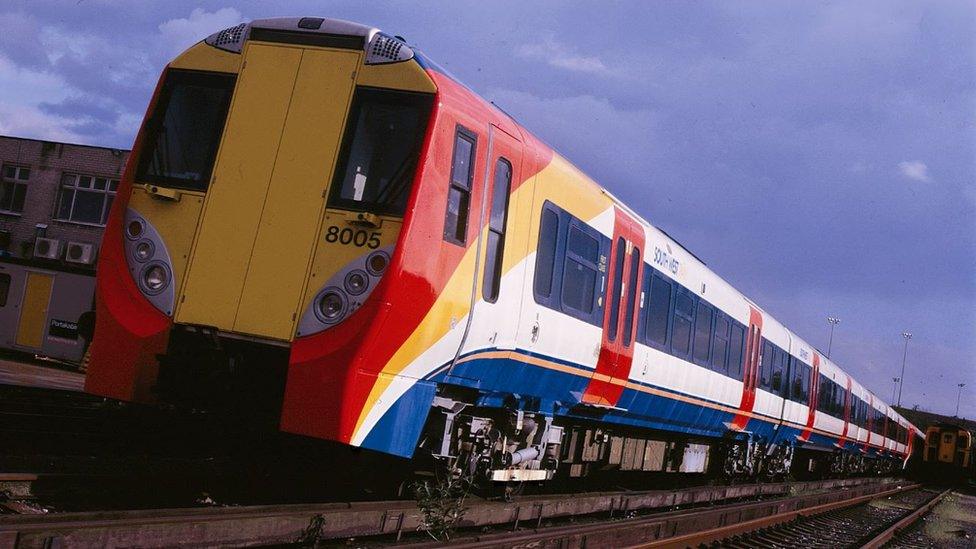
- Published7 January 2016
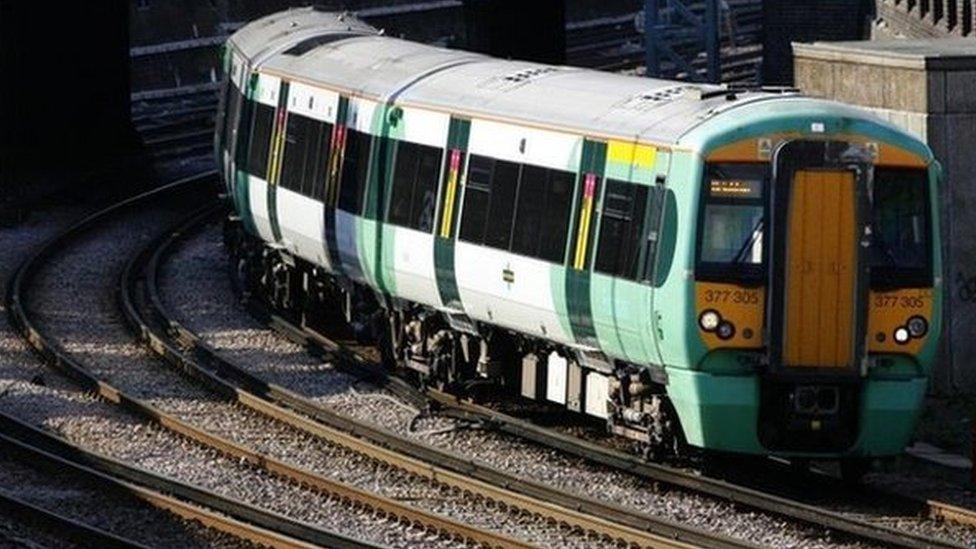
- Published9 December 2015
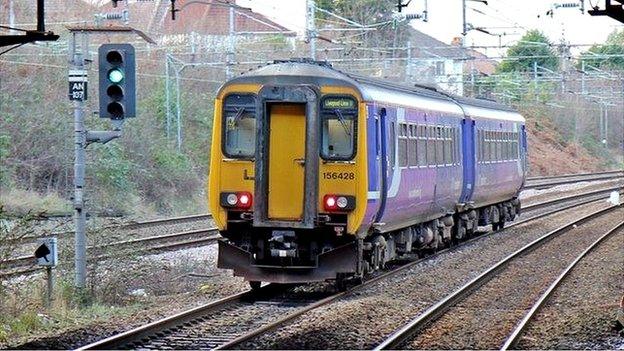
- Published9 December 2015
